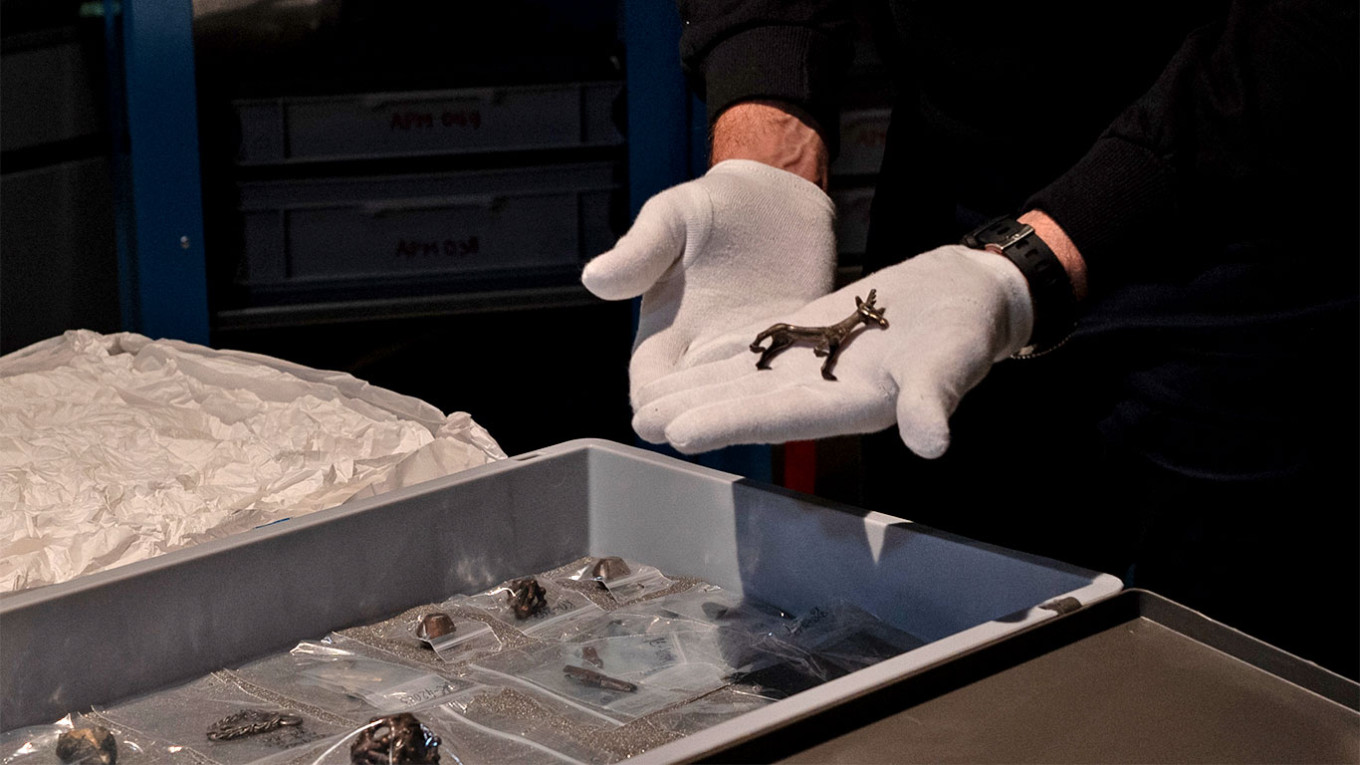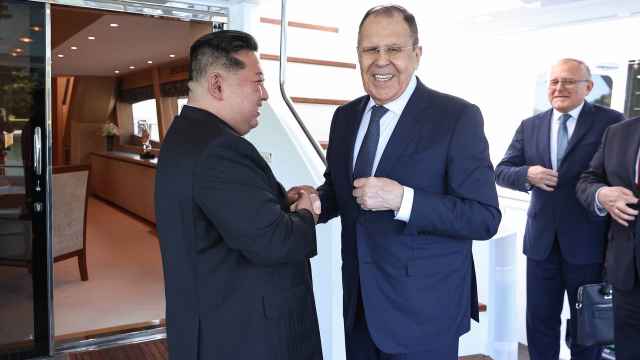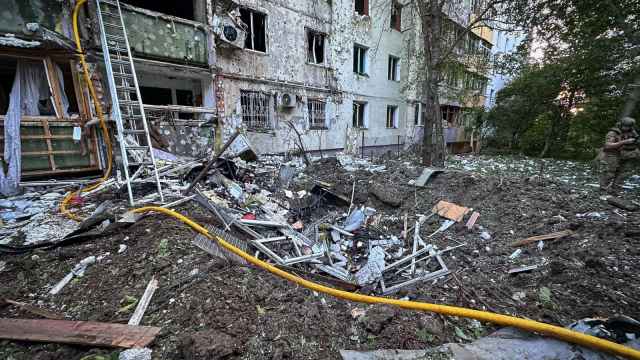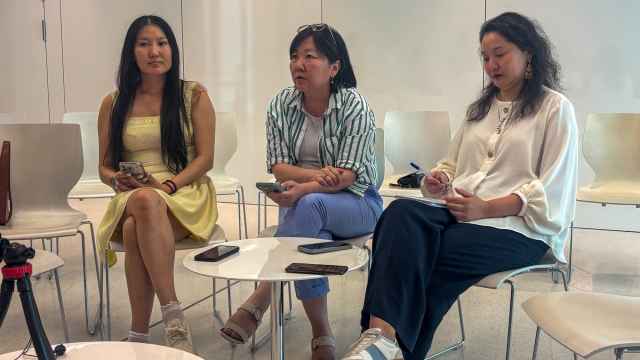Ancient Crimean gold treasures returned to Kyiv Monday after being held in a Dutch museum for nine years, where they were on show when Russia seized the Black Sea peninsula in 2014.
The Scythian artifacts – some around 2,000 years old – were on loan to Amsterdam's Allard Pierson museum when they were suddenly at the center of a geopolitical crisis following Russia's 2014 annexation of Crimea.
Years of legal battles ensued, with museums in Crimea controlled by both Kyiv and Moscow filing suits that the jewels should be in their hands. The Dutch Supreme Court ruled this summer they should be transferred to Ukraine.
"After almost 10 years of trials, artifacts from four museums of Crimea... returned to Ukraine," the National Museum of the History of Ukraine (NMHU) said on its website.
"They will be kept in the NMHU until the de-occupation of Crimea," it added.
Their return comes 21 months into Moscow's invasion, and is a symbolic victory for Kyiv, which has repeatedly vowed to retake Crimea.
Moscow has insisted that the hundreds of artifacts – which include a golden helmet – should be kept in Crimea, territory which it claims as its own.
"It belongs to Crimea, it should be there," Kremlin spokesman Dmitry Peskov said Monday in response to the jewels arriving in Ukraine.
The treasures were kept at the Allard Pierson museum throughout the legal battles, awaiting a ruling.
In June, the Netherlands' top court ruled they should be handed to Ukraine, and not to the four Crimean museums.
"This was a special case, in which cultural heritage became a victim of geopolitical developments," Allard Pierson director Els van der Plas said on the museum's website.
She said that, during the legal battles, the museum "focused on safely storing the artifacts until the time came to return them to their rightful owner."
"We are pleased that clarity has emerged and that they have now been returned," she added.
A Message from The Moscow Times:
Dear readers,
We are facing unprecedented challenges. Russia's Prosecutor General's Office has designated The Moscow Times as an "undesirable" organization, criminalizing our work and putting our staff at risk of prosecution. This follows our earlier unjust labeling as a "foreign agent."
These actions are direct attempts to silence independent journalism in Russia. The authorities claim our work "discredits the decisions of the Russian leadership." We see things differently: we strive to provide accurate, unbiased reporting on Russia.
We, the journalists of The Moscow Times, refuse to be silenced. But to continue our work, we need your help.
Your support, no matter how small, makes a world of difference. If you can, please support us monthly starting from just $2. It's quick to set up, and every contribution makes a significant impact.
By supporting The Moscow Times, you're defending open, independent journalism in the face of repression. Thank you for standing with us.
Remind me later.






